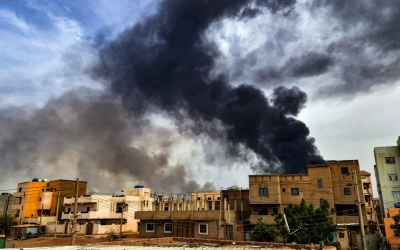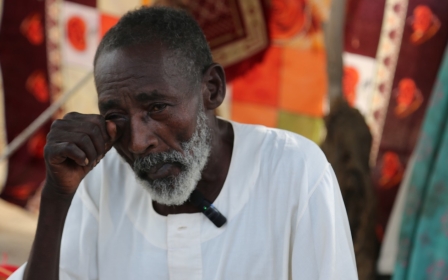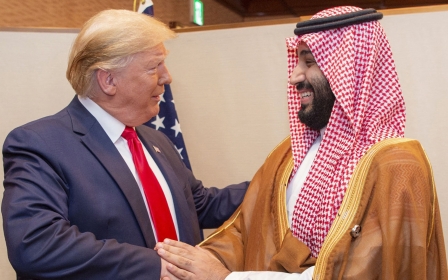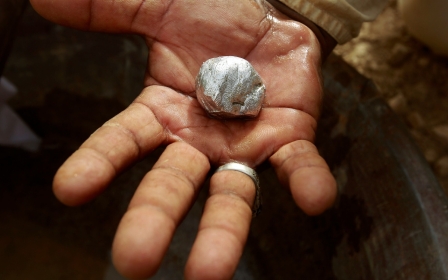Donald Trump and Sudan: What can we expect from the next US presidency?
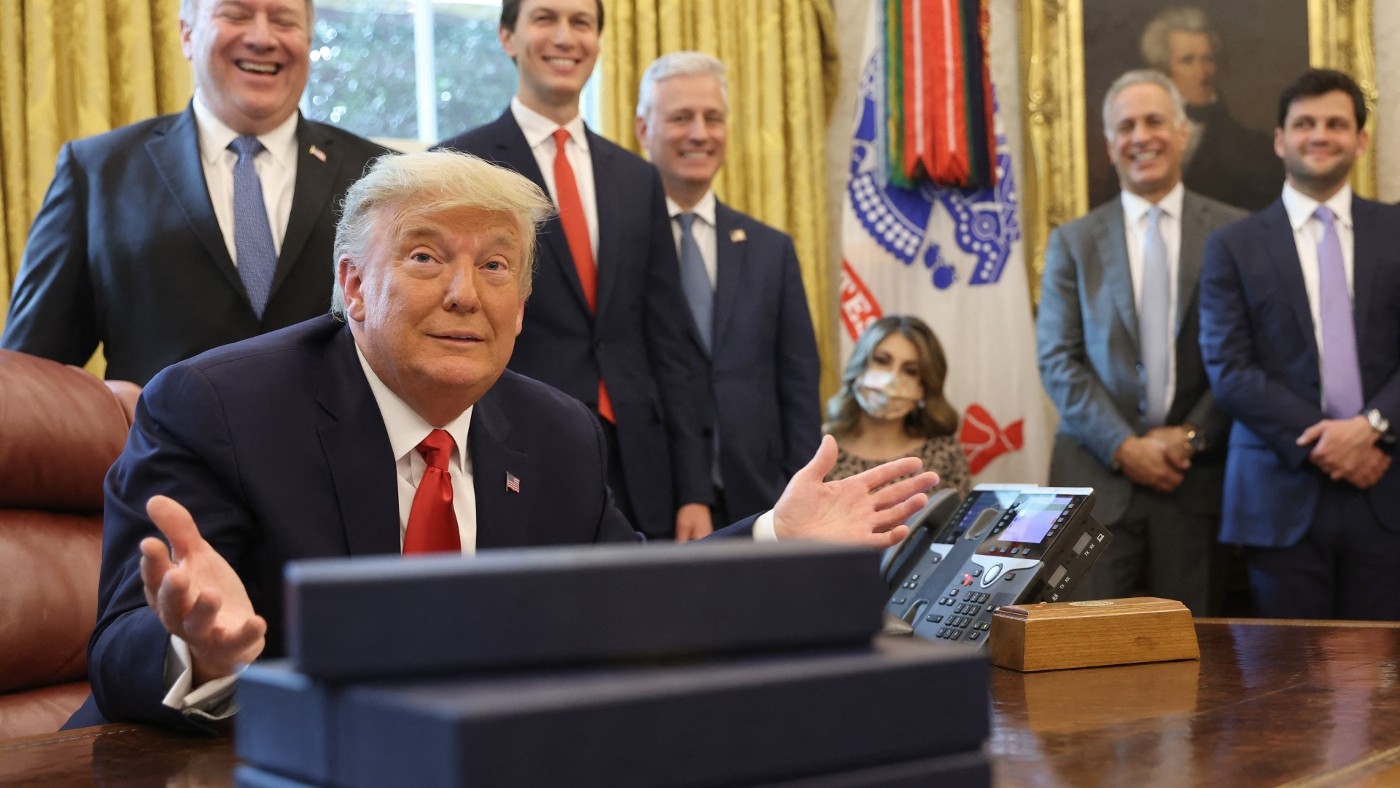
Sudan’s warring generals were quick with their congratulations.
Not long after Donald Trump’s victory in the US presidential elections was confirmed, Sudanese army chief General Abdel Fattah al-Burhan announced that he was looking forward to “developing relations between our two countries during his presidency for the benefit of both countries”.
Burhan’s ally-turned-enemy, General Mohamed Hamdan Dagalo, the Rapid Support Forces (RSF) chief better known as Hemeti, was not far behind, extending his congratulations through the paramilitary group’s media office.
Over 18 months into a war that has turned Sudan into the world’s largest humanitarian catastrophe by scale, with nearly 30 percent of the population having fled their homes, tens of thousands dead and famine rampant, both Hemeti and Burhan see a chance to gain the upper hand.
But this isn’t because the returning president is expected to have any real interest in Sudan.
New MEE newsletter: Jerusalem Dispatch
Sign up to get the latest insights and analysis on Israel-Palestine, alongside Turkey Unpacked and other MEE newsletters
“I’m pretty sure Trump can’t find Sudan on a map,” one diplomat in the region told Middle East Eye.
“And of course he’s not a details guy. He likes to hand all of that over to the people around him. But he does like to pick sides.”
What has BJoe Biden said about Sudan?
A lack of interest in Sudan would hardly be a change for a US president. As the war has raged on, as the crisis has become ever worse, the absence of any real engagement from Washington has become more stark.
While Joe Biden came into office promising not just to repair US relations with Africa following Trump’s first term, but to deepen them, he has not set foot on the continent as president.
He has barely mentioned Sudan in public and had not engaged with it diplomatically, focusing instead on his country’s support for Ukraine and Israel.
'Just like Biden, I don’t think Sudan is going to be on Trump’s desk... Sudan will continue to be seen through the prism of Arab countries that are US allies'
- Kholood Khair, Sudanese analyst
“Sudan never made it to Biden’s desk, really. Very little has come out of the senior level of the Biden administration on Sudan,” Kholood Khair, a Sudanese analyst and founding director of Confluence Advisory, a "think-and-do tank" in Khartoum, told MEE.
Khair pointed out that in the months leading up to the start of Sudan’s war in April 2023, the US had been very involved in the framework agreement intended to pave the way for a transition back to civilian rule in Sudan.
One of the major sticking points in that deal was the reabsorption of the RSF into the army: how that would happen, when it would happen, how long it would take. This was never resolved, but the US - and Molly Phee, the assistant secretary of state for African affairs - missed the signs that war was coming and that this would be the spark.
“The Americans had such a big hand in the framework agreement, so their lack of responsibility when the war broke out was even more egregious,” Khair said.
Following the outbreak of war, the US and Saudi Arabia sponsored the Jeddah talks, aimed at finding a diplomatic solution to end the war. This August, when they resumed, neither the army nor the RSF turned up.
In February, responding to pressure from civil society, the US appointed a special envoy for Sudan, Tom Perriello. Described as energetic and engaged, Perriello is this week on another tour taking in Egypt, Kenya and Uganda.
But he has not been to Sudan, where the war is taking place, or to the United Arab Emirates, which is the main patron of the RSF, providing it with weapons, money and diplomatic support. High-level Emirati officials will not meet with Perriello and senior figures in the Biden administration are unwilling to seriously press Abu Dhabi on its role in fuelling the war.
Cameron Hudson, a senior fellow in the Africa programme at the Centre for Strategic and International Studies and a former chief of staff to successive presidential special envoys for Sudan, said the problem with Biden’s approach "to Africa writ large" was that he raised expectations then did nothing to meet them.
“Africans didn’t ask for that, Biden offered it, and then didn’t live up to it. If you narrow down to Sudan, that argument holds true,” Hudson said, pointing out that Perriello, who answers to Phee and only occasionally to top US diplomat Antony Blinken, is “completely untethered from the kind of high-level support that is required to really move the needle”.
What has Donald Trump said on Sudan?
While Trump’s return to the White House is momentous, some analysts argue that for US policy in Sudan and the Middle East it may not change very much in the immediate term.
“Trump’s return to the US presidency is characterised by an even stronger anti-liberal stance than in 2017, backed by a more robust popular mandate and a more ideologically aligned, self-consistent team of policymakers,” Jalel Harchaoui, associate fellow at the Royal United Services Institute (RUSI), told MEE.
'Sudan is going to be seen as a bargaining chip that can be offered to exchange for something else'
- Cameron Hudson, former State Department official
“This might theoretically seem to favour authoritarian figures like Sudan’s Hemeti, the UAE’s Mohammed bin Zayed, and Libya’s Khalifa Haftar. But in real life, the Biden administration had already abandoned any form of liberal idealism in Sudan," Harchaoui added.
"So the transition may only tweak rhetoric, but not action. US pressure on Sudan is already non-existent under Biden. Therefore, the forces already at play will likely continue operating while American involvement remains inconsequential.”
For Harchaoui, this continuity will be seen elsewhere. “It is like in Israel. Can you be more pro-Netanyahu? Of course not… Biden was a rabid Zionist. You can’t match him… In Ukraine, the war will go on for at least a year or two because of the arms industry having become addicted to it.”
During Trump’s first term as president, when it came to Sudan, the priority was Israel, despite it being a momentous time in the country. In 2019, after three decades as ruler, Burhan and Hemeti removed longtime autocrat Omar al-Bashir from power, following a rolling, months-long democratic revolution.
Together, the army chief and his RSF counterpart tried to quash that revolution, but it led to a transitional civilian-military government, which was then crushed by the October 2021 coup, which took place with Biden in the White House.
Trump, Israel and the Abraham Accords
Domestic developments in Sudan - however dramatic - were not on Trump’s radar. When Sudan entered his purview, it was because of Israel.
In October 2020, Sudan’s name was removed from the US list of state sponsors of terrorism. Days later, the then-US president announced that Sudan might follow the UAE and Bahrain and become the third Arab country to normalise relations with Israel, as part of the Abraham Accords, his signature foreign policy.
Celebrating the deal over the phone with Benjamin Netanyahu, Trump made fun of Biden as he asked his Israeli counterpart: “Do you think Sleepy Joe could have made this deal, Bibi, Sleepy Joe? Do you think he would have made this deal? Somehow I don’t think so.”
Sudan had become a pawn in a vision shared by Trump and Netanyahu, one in which the Palestinians became more and more isolated as one Arab state after another established full relations with Israel in exchange for certain favours from Washington.
“Just like Biden, I don’t think Sudan is going to be on Trump’s desk. And just like Biden, I think Sudan will continue to be seen through the prism of Arab countries that are US allies: Egypt, Saudi Arabia and the UAE,” said Khair.
“Particularly the Gulf, because for Trump his two core policies for the Middle East, which Sudan sort of falls under, are being anti-Iran and being pro-Israel and pro-Abraham Accords as much as possible.”
Sudan and the US State Department
In the US governmental system, Sudan is supposed to be the remit of the State Department’s Bureau of African Affairs. But the influence of Saudi Arabia and the UAE on US policy means that Sudan is often dragged into the orbit of the Bureau of Near Eastern Affairs.
These two State Department bureaus have very different cultures. The Near Eastern bureau is full of officials whose thinking has been shaped by time spent in Iraq and Libya, and by the US war on terror.
“For Trump, because his signature policy is the Abraham Accords, that’s the lens through which he sees Sudan,” Khair said. “Sudan will not be seen on its own terms… It won’t be seen through its internal dynamics or how it relates to the Sahel or the Horn.”
“I think Sudan is going to be an addendum in a Trump administration to his wider Middle East and Gulf policy,” Hudson said. “Sudan is going to be seen as a bargaining chip that can be offered to exchange for something else… The resolution of the war in Sudan under Trump will be the byproduct of a much larger deal.”
“He’s going to look at the UAE, Saudi Arabia and Egypt and say: resolve this,” Hudson added. The question will then be how those three powers proceed.
While the UAE’s support for the RSF in Sudan is well known, Saudi Arabia’s more discreet preference for the Sudanese army, a force it comprehends and can deal with, is less widely talked about.
The military situation on the ground, with fierce fighting taking place in Darfur, Khartoum, Gezira state and across other parts of Sudan, will affect things. “The Trump administration will look to pick a winner,” Khair said. “Burhan and Hemeti are auditioning politically, but they will also be auditioning on the battlefield.”
With Trump, and the US right wing more generally, keen to slash humanitarian aid wherever possible, the situation in Sudan could become ever darker as fighting picks up with the beginning of the dry season in November.
“It doesn’t look very good either way for Sudan, in that it will not be judged on its own merits, its own severity, its own development, but rather on the humanitarian side through the prism of Trump’s domestic fiscal policy and then on the political side, the Gulf and Israel,” Khair said.
“This does not augur well for Sudan’s longterm stability and its ability to transition to anything that looks like a civilian democratic country.”
Middle East Eye delivers independent and unrivalled coverage and analysis of the Middle East, North Africa and beyond. To learn more about republishing this content and the associated fees, please fill out this form. More about MEE can be found here.


